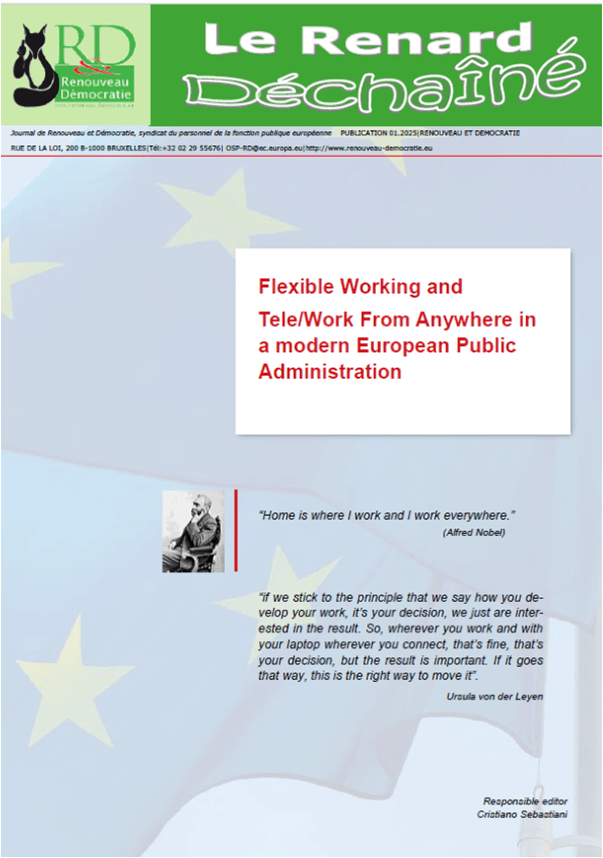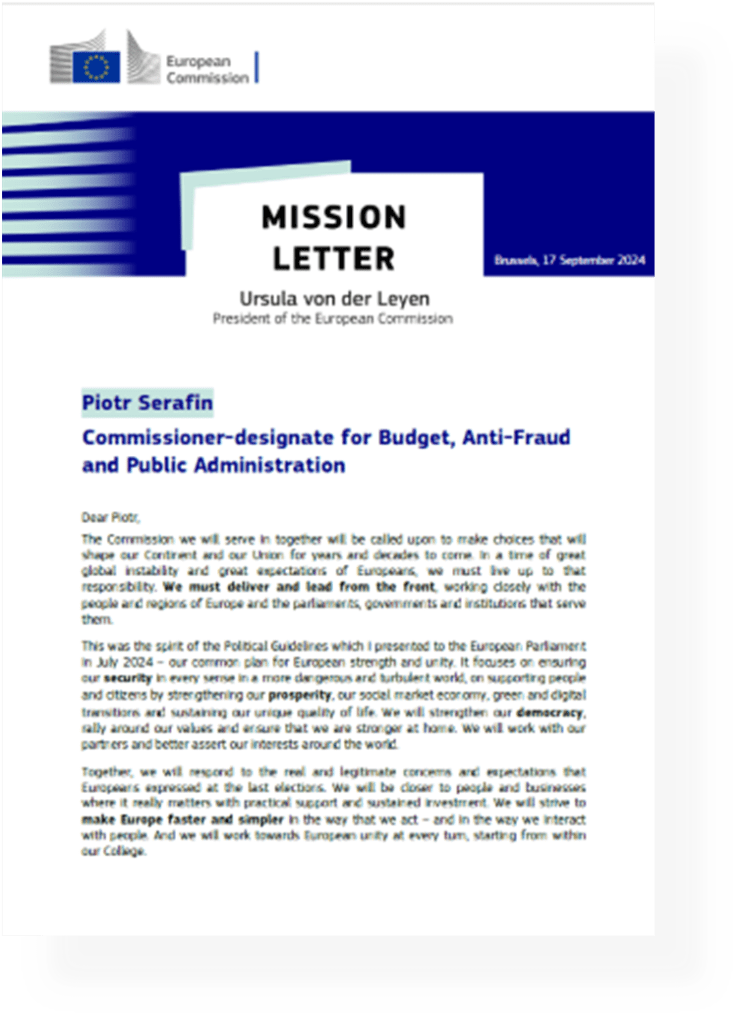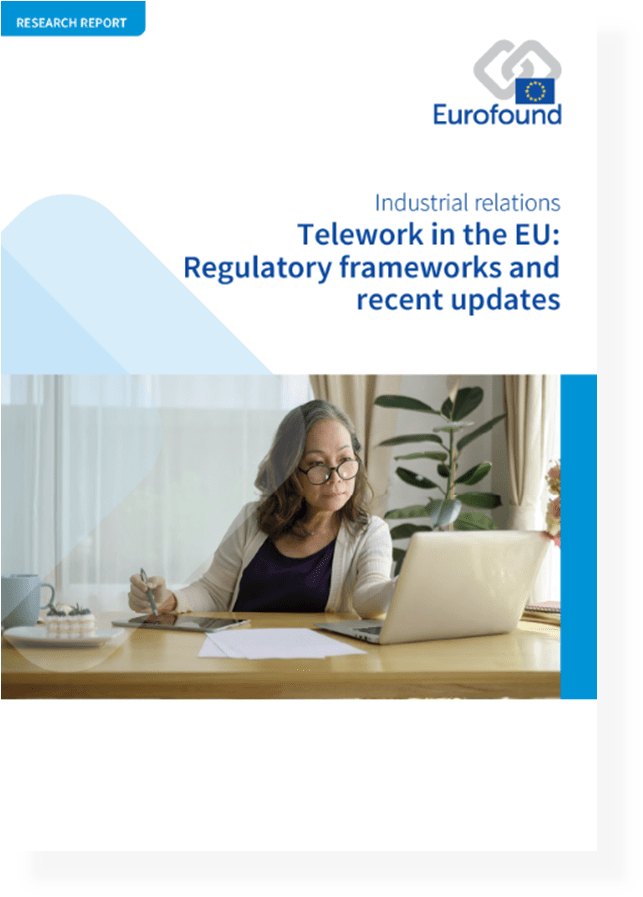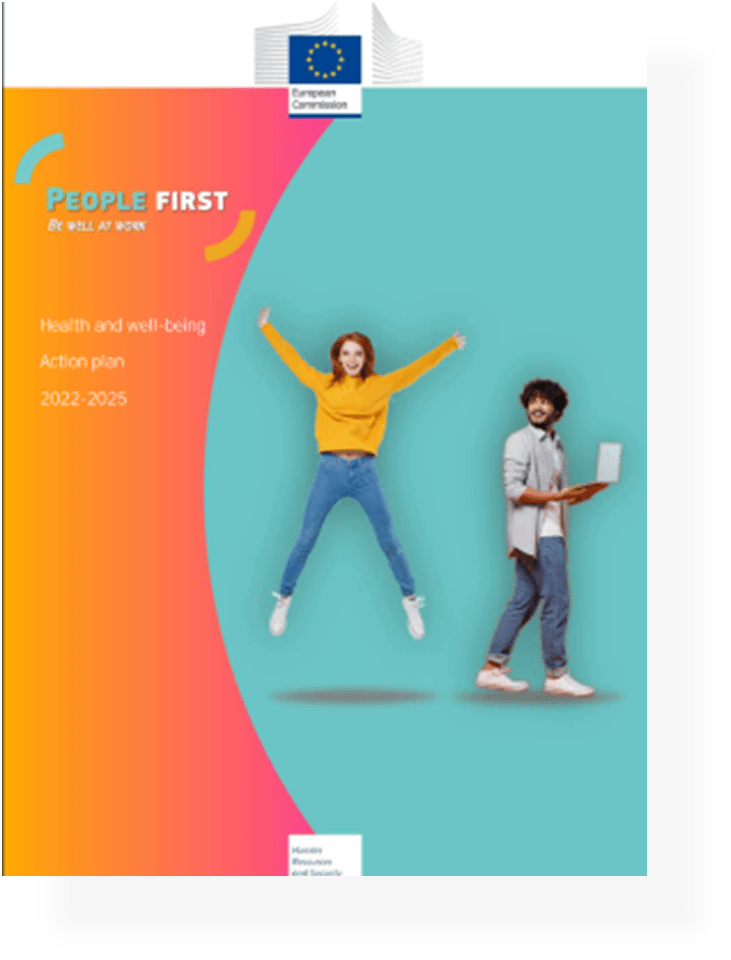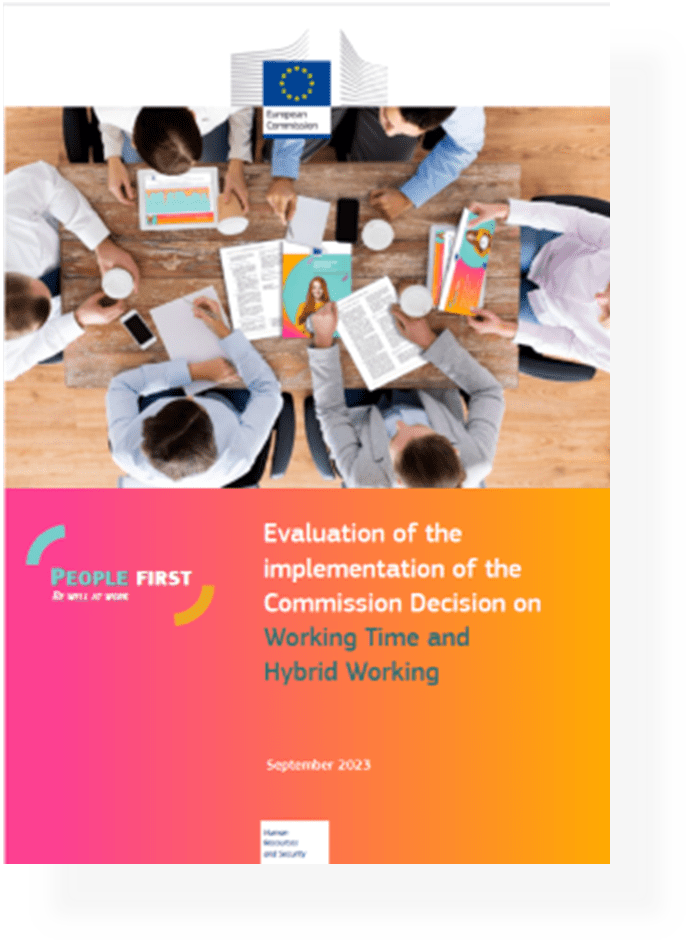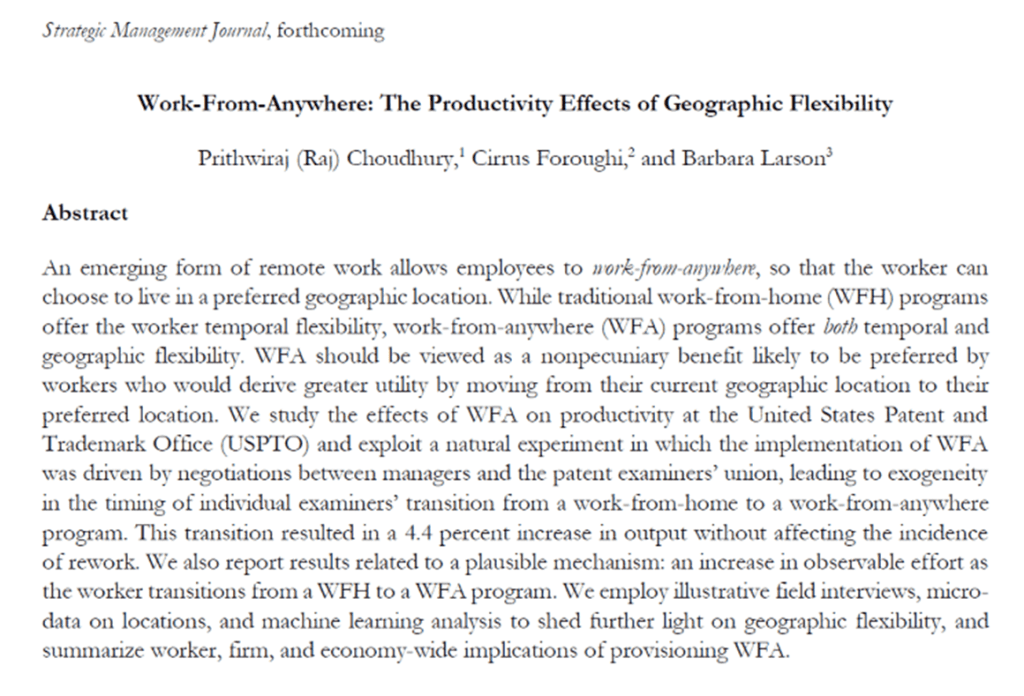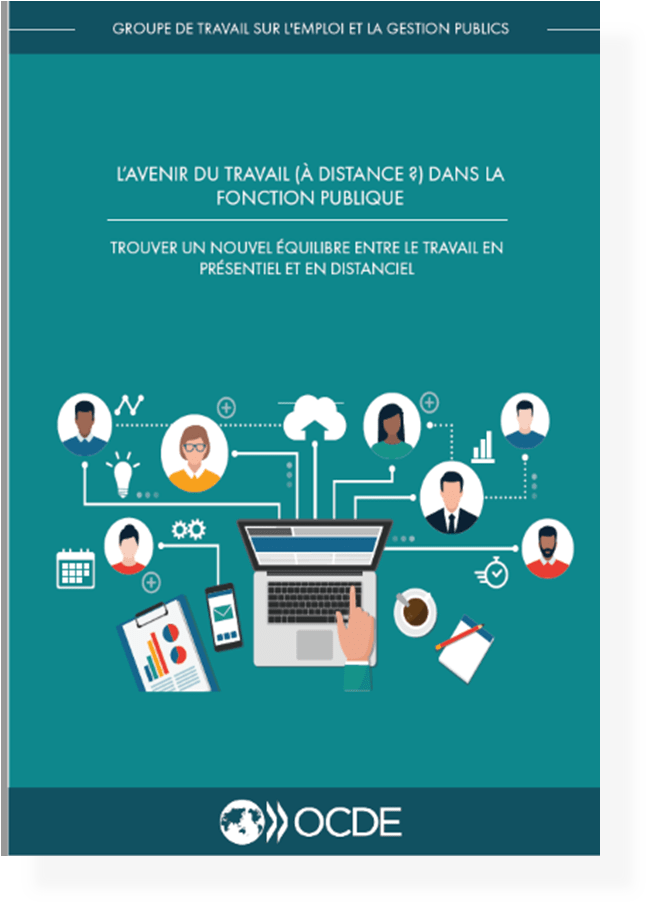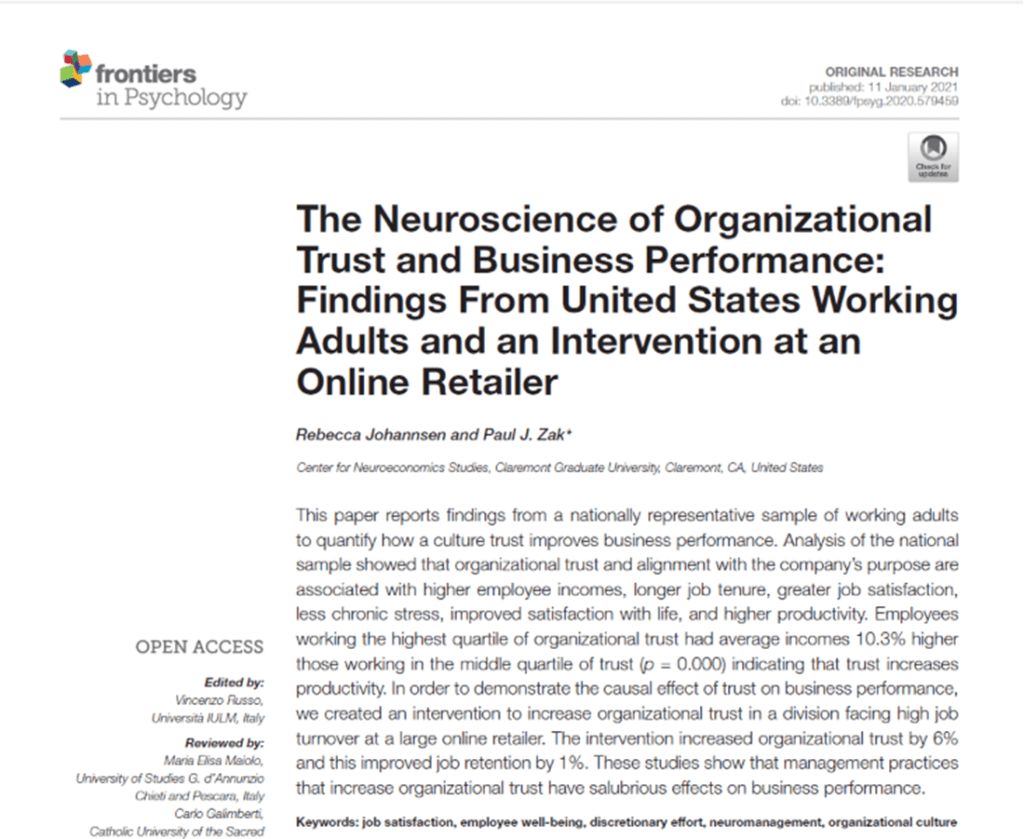“Home is where I work and I work everywhere.”
Alfred Nobel
Flexible Working and Tele/Work From Anywhere in a modern EU Administration
“if we stick to the principle that we say how you develop your work, it’s your decision, we just are interested in the result. So, wherever you work and with your laptop wherever you connect, that’s fine, that’s your decision, but the result is important. If it goes that way, this is the right way to move it”.
Ursula von der Leyen
In our communication of 14 November 2024 ( link ) , we have already emphasised the extent to which flexible working is the essential response to the difficulties encountered by EU Institutions in recruiting candidates, particularly young candidates, and to the geographical imbalance.
We are delighted to acknowledge the overwhelming support for our communication from both colleagues and the heads of our Institution’s Services.
Flexible working is not just the answer to the problems of attractiveness of our civil service when recruiting, it is also an essential measure to ensure the well-being and efficiency of staff, as well as the implementation of HUMAN MANAGEMENT based on a genuine “culture of trust” that R&D supports with the greatest conviction.
Even if it is obvious that the two aspects are strictly linked, it is nevertheless essential to analyse more specifically the need to strengthen flexible working also with regard to existing staff.
That is the aim of this new R&D communication.
Executive Summary
• Vision Alignment
R&D supports the vision set out in Commissioner Serafin’s Mission letter aiming to ensure “that Europe can draw on a modern, efficient public administration to deliver Commission’s political priorities and make a difference to the daily lives of Europeans”.
Flexible work is key to modernizing public administration. It promotes efficiency, supports staff well-being, and enables the Commission to effectively deliver on its political priorities. Flexible work, including hybrid and remote options, supports Commissioner Serafin’s vision for a modern, efficient, and citizen-focused EU public administration.
• Proven Success During the Pandemic
Hybrid work ensured uninterrupted Commission operations during COVID-19, proving its effectiveness in maintaining productivity and service delivery. Over 30,000 staff adapted quickly to remote work, demonstrating the feasibility of flexible arrangements for a modern workforce.
• Benefits of Flexible Work:
- – Workforce Well-Being: Improved work-life balance, reduced commuting time, and better mental health were reported.
• Organizational Efficiency: Increased motivation, focus, and output among staff, supported by a culture of autonomy and trust.
• Environmental and Financial Impact: Lower office space requirements, energy savings, and reduced pollution.
- – Flexibility as a Competitive Advantage:
- • Enhanced teleworking options attract young and skilled candidates, addressing recruitment challenges, underrepresentation issues, and geographical imbalances.
- • More flexible work policies are essential to retaining talent and meeting employee expectations.
- – Economic & Social Benefits: Flexible work reduces costs, enhances environmental sustainability, and brings EU officials closer to citizens across member states.
• Call for Extended Flexibility:
- • Greater teleworking options, especially beyond the current 10-day annual limit for working outside Brussels/place of employment (TWA), are essential.
- • Level up the gap of TWA days between colleagues based on their place of employment
- • Benchmark against other EU institutions (e.g., ECB allows up to 90 TWA days) to create more competitive and modern policies.
- • Enable staff to work remotely across the EU, fostering closer ties with citizens and increasing institutional relevance.
• Rejection of Past Models and Overcoming Unjustified Fears: Calls to revert to rigid, outdated management techniques are counterproductive to fostering agility and innovation. Overcome unjustified fears (like the one related to expatriation allowance) to allow progress and positive change.
• Transition to Human-Centered Management: A shift to a “human management” approach is critical, emphasizing trust, staff well-being, and results over physical presence.
• Flexibility and staff involvement: Managers should adopt a more flexible and empathic approach towards employees and involve them more in the design of work policies.
• Institutional Attractiveness: Flexible arrangements improve the Commission’s appeal as an employer, addressing concerns over declining satisfaction and recruitment difficulties, especially among younger candidates and underrepresentation of certain Members States, like the Nordic countries.
• Call to Action: The Commission must extend flexible work policies to align with modern practices, staff expectations, and institutional goals.
• Recommendations:
- • Strengthen the commitment to flexible working.
- • Revise teleworking policies to include extended location flexibility while preserving team cohesion and operational needs.
- • Embrace flexible working as a core element of a modern, efficient, and attractive civil service aligned with European values and citizen expectations.
Cristiano Sebastiani
Chairman
BACKGROUND PAPER
“Flexibility is the key to stability.”
(John Wooden)
R&D supports the vision set out in Commissioner Serafin’s Mission letter aiming to ensure “that Europe can draw on a modern, efficient public administration to deliver Commission’s political priorities and make a difference to the daily lives of Europeans”.
In this respect, as confirmed by the measures put in place by a number of Member States, Hybrid work is an essential and indispensable element for any modern and efficient public administration.
Telework ensured that the Commission operated smoothly throughout the pandemic, enabling it to meet citizens’ expectations.
Flexible work must now become part of a new ‘HUMAN management’ culture based on a genuine culture of trust and staff well-being.
As the very positive results of the staff survey just published confirm, colleagues, including managers, appreciate the flexibility already introduced and are asking us to do more.
Any attempt to “go back to the past” must be firmly rejected and more flexibility is needed also in terms of WHERE you can telework from.
In order to ensure that our civil service meets the expectations of the European citizens, as requested in the Mission letter, and that it takes account of the best practices following a benchmarking exercise, we must not question the progress already made, and resist any attempt to return “to the past” and to obsolete and highly damaging management techniques that would prevent our institution from being “agile”, as requested in the abovementioned Mission letter.
To address the problem of underrepresented Member States, the difficulties of retaining staff and to recruiting new talents, as well as addressing the geographical imbalance, a more open-minded policy is needed.
This concerns, first and foremost, the need to duly implement and extend the possibilities of hybrid and flexible work for the staff who wish to benefit from it.
To implement inclusive and flexible working conditions, no reform is needed. It is reassuring that the Mission letter makes no indications to any reform either.
In our communication of 14 November 2024 (link) , we have already emphasised the extent to which flexible working is the essential response to the difficulties encountered by EU Institutions in recruiting candidates, particularly young candidates, and to the geographical imbalance.
We are delighted to acknowledge the overwhelming support for our communication from both colleagues and the heads of our Institution’s Services.
Flexible working is not just the answer to the problems of attractiveness of our civil service when recruiting, it is also an essential measure to ensure the well-being and efficiency of staff, as well as the implementation of HUMAN MANAGEMENT based on a genuine “culture of trust” that R&D supports with the greatest conviction.
Even if it is obvious that the two aspects are strictly linked, it is nevertheless essential to analyse more specifically the need to strengthen flexible working also with regard to existing staff.
That is the aim of this new R&D communication.
FLEXIBILITY ACROSS THE BOARD -FLEXIBILITY IN THE COMMISSION AND ALL THE BENEFITS THAT R&D HAS HIGHLIGHTED
As Barbara Sher once said: “Change is not only likely, it’s inevitable.”
When the pandemic hit Europe, almost all European Commission staff, like everyone else, had to switch to teleworking overnight.
The COVID-19 pandemic forever changed the way the European Commission worked and the way its staff interacted. For almost two years, by decision of the Commission, more than 30,000 members of staff worked from home.
To the surprise of many, this went exceptionally smoothly and without any major hiccups.
The Commission’s contingency planning and IT upgrades paid off. But that’s not all: EU staff themselves have embraced the change, adapting to online meetings and new IT tools, showing remarkable adaptability and keeping the EU machinery running.
It is now clear that the pandemic acted as a catalyst, accelerating the shift to telework and demonstrating that many tasks can be carried out efficiently remotely.
A Eurofound report focusing on teleworking during the pandemic in 2020 and 2021 shows a significant increase in telework due to COVID-19. This trend, whereby 2 out of 10 European employees worked remotely in 2021, would probably never have happened without the pandemic.
The pandemic has highlighted the positive aspects of teleworking, such as better work-life balance, reduced commuting time with less pollution and emissions, and greater autonomy and flexibility.
Now that the worst of the pandemic is over, the lessons we learned during the lockdowns and the extended period of teleworking must not be in vain.
Teleworking was a quick fix then, but it is also a boon for the future.
Teleworking cannot be reduced to a purely building cost-saving issue…
The European Commission seems to have been primarily concerned with the obvious benefits of increased teleworking, i.e. freeing up expensive office space and cutting the related energy and maintenance costs.
In fact, the Commission has already decided to reduce its office space by switching to “hot desks” in open space offices, closing buildings in summer, selling 22 “redundant buildings”, …thus saving several millions of the Commission’s administrative budget.
This decision is now confirmed by the abovementioned mission letter and must thus be fully taken into account when it comes to deal with work organisation.
Teleworking must become part of a genuine culture of staff well-being, fulfilling the promises of the “Health & Well-being 2022-2025” Action Plan.
The latest results of the staff consultation show that 83% of all staff at all levels and in all locations are satisfied with the flexibility of their work.
Thanks to teleworking, staff confirm that among other things, they are more motivated and energetic at work, perform better and have a greater ability to concentrate on their tasks, not least because they enjoy a better work-life balance.
This view is supported by a number of reports and surveys showing that employees who work remotely are more productive and enjoy better mental health.
In addition, at the request of R&D, the right to disconnect was included in the decision. Nevertheless, we remain vigilant as to its implementation.
In addition, at the request of R&D, the right to disconnect was included in the decision. Nevertheless, we remain vigilant as to its implementation.
As highlighted in a recent Forbes’ article, teleworking is a potential solution to mitigate health issues in the workplace, with many workers reporting mental wellbeing benefits from working remotely. Remote workers seem to be more productive and have better mental health, which can help reduce the negative effects of burnout.
« Remote Work Is Here To Stay And Will Increase Into 2023, Experts Say »
Forbes
Flexible teleworking allows employees to avoid long commutes, better manage their working hours and achieve a better work-life balance.
Teleworking must be one of the components of a new modern HUMAN management, based on a genuine “culture of trust”
This shift towards teleworking challenges the need to comply with previous work models and encourages a more flexible approach to work organisation.
Flexibility and staff involvement: Experts recommend that the managers adopt a more flexible and empathic approach towards employees and involve them more in the design of work policies, a point supported by R&D throughout the negotiations and taken up in DG HR’s recommendations.
It is advisable to regularly collect data on employee well-being, productivity, and satisfaction in order to adjust policies accordingly.
Experts confirm that “successful companies are those that have adopted a human-centred approach, listened to their employees and created personalised solutions,” and “they have understood that returning to the office is not an all-or-nothing issue, but rather a question of finding the right balance for each individual and each team” .
« Le retour au bureau, une erreur stratégique pour les entreprises ? 80% des patrons regrettent leurs décisions initiales. Et admettent qu’ils auraient dû mieux écouter leurs employés, selon Envoy »
read
Experts also point out that companies and public administrations that do not operate according to employees’ needs risk losing their staff and becoming less attractive.
According to the Wall Street Journal, employers who require a return to the office are at a disadvantage in the labour market.
Companies that offer telework have seen an increase in their workforce and stress that telework is a key factor in attracting and retaining talent, especially the most sought-after candidates.
A study by Harvard Business School confirms this: “When you allow flexibility, it expands your talent pool”, enabling you to attract and/or retain the best candidates/employees. And there is no difference in this regard between private companies and public administrations.
As an OCEDE study entitled: “L’avenir du travail (à distance?) dans la function publique” reminds us:” we now know that we could operate with less command and control. We can actually have more empowerment, autonomy and responsibility in the teams, and with quality results.”
The impact of teleworking on organisational culture and trust in public organisations remains one of the most difficult things to measure. Organisational culture is the unwritten rules, habits and norms that surround a workplace. These are the cues and incentives that drive behaviours, attitudes and values. When properly aligned, organisational culture can create a shared sense of purpose, identity and belonging.
Trust is a fundamental aspect of a new positive management culture
Remote working has definitely helped to improve trust by proving that presence is not a prerequisite for productivity.
According to a recent neuroscience study,“a culture of trust is what makes a meaningful difference. Employees in high-trust organizations are more productive, have more energy at work, collaborate better with their colleagues, and stay with their employers longer than people working at low-trust companies. They also suffer less chronic stress and are happier with their lives, and these factors fuel stronger performance”.
In most knowledge-based workplaces (and offices), the unsatisfactory association of presence with productivity is being replaced by a focus on deliverables and results.
Modern management should care less about the number of hours in the office and more about the quality of work an employee is able to deliver, the results achieved, regardless of where they are doing it from. That is, even if the number of hours is kept as one performance metric, it doesn’t matter where those hours are worked.
As the UK’s new business secretary rightly pointed out in an interview with The Times, “allowing flexible working and working from home creates a more productive, loyal workforce” and those employers “need to judge people on outcomes and not a culture of presenteeism”. Firmly rejecting any war on flexible working and confirming that the right to flexible working will be enshrined in law as a ‘default’ ( read )
Managers who, at the start of the COVID crisis questioned the ability and motivation of their staff to work from home, have now learned that there is virtually no task that cannot be done remotely. Perhaps they have learned to trust their employees to get the job done, even when they cannot see them at their desks.
This change in mentality bodes well for the future of teleworking in the public sector and in our institution, as is also clearly shown by the results of the last staff survey.
Much has been done in the Commission on teleworking, but we need to allow more flexibility, particularly on WHERE you can telework from: ten days a year outside the place of employment is not enough, and more flexibility is definitely needed.
It is worth recalling that, as President von der Leyen so rightly said in an interview for a European Central Bank podcast: “if we stick to the principle that we say how you develop your work, it’s your decision, we just are interested in the result. So, wherever you work and with your laptop wherever you connect, that’s fine, that’s your decision, but the result is important. If it goes that way, this is the right way to move it”.
Yet currently, EU officials in Brussels/place of employment can only telework within a limited radius, not from elsewhere in the EU, even though the pandemic has shown that it doesn’t matter where they are sitting during an online meeting or when drafting a document.
The possibility of working from another location, at least part of the time, is even more important when it comes to addressing the unattractiveness of our civil service, which is now undeniable, especially among young candidates and certain Member States.
The issue of teleworking from abroad/anywhere is also crucial, as the 10 days per calendar year of telework outside the place of employment are clearly insufficient for officials to keep in touch with their own families, their own lives and their own countries.
Certain cultural factors, such as lower mobility due to close family ties and a higher age of entry into the labour market or geographical distance from the institutions, make it more difficult for certain nationals to relocate permanently to Brussels.
Currently, the Commission allows staff to telework outside the place of employment for 10 days a year (except staff living in Belgium/place of employment or a neighbouring country), whereas the Council, the Committee of Regions and the Economic and Social Committee allow 15 days, the Court of Auditors 30 days and the European Central Bank up to 90 days.
According to the statistics on teleworking outside the place of employment in 2023, both staff and managers are very satisfied with this new flexible way of working.
It has had a positive impact on their well-being and has improved performance while guaranteeing continuity of service. In addition, by combining teleworking with annual leave staff have been able to stay in their place of origin longer, enabling them to achieve a better work-life balance.
In the last Pulse survey, 92% of managers acknowledged that teleworking outside the place of employment had a positive impact on staff wellbeing and contributed positively to their availability (62%) and performance (61%)
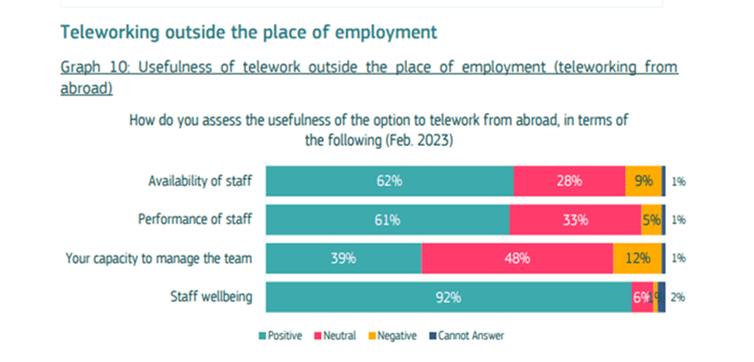
Moreover, the results of the latest Staff Survey (2023) show that 84% of staff feel that flexible working arrangements facilitate their work.
However, only 57% of staff are satisfied with the physical working environment in the office.
These new working arrangements could help to make our institution more attractive to future young colleagues, especially as the results of the recent Staff Survey show a decrease in satisfaction with the institution as an attractive employer.
Even the European Parliament, where teleworking outside the place of employment was until recently almost taboo due to the nature of the specific tasks carried out by its staff, has just introduced it.
The Court of Auditors has increased the possibilities of teleworking outside the place of employment in order to attract more and better candidates and to overcome, at least in part, recruitment difficulties in Luxembourg.
Increasing the flexibility of teleworking outside the place of employment for Commission staff would also be more in line with the more flexible remote working arrangements offered e.g. by the European Patent Office, the Paris-based OECD, the Belgian Federal Government and the Finnish Defence Forces, to name but a few.
More flexible remote working arrangements for EU staff would have the added benefit of bringing “Europe” closer to its citizens.
If staff can telework more throughout the EU, they will encounter other citizens outside the Brussels “bubble” in their everyday interactions. Although EU staff cannot and do not speak on behalf of the Commission, they are sometimes perceived in the popular imagination as detached bureaucratic elites who work little but wine and dine a lot with lobbyists and influence peddlers.
Meeting an EU staff member can easily counter the image of the Commission as unaccountable, aloof Eurocrats in faraway Brussels. It can also help EU officials remain grounded, keep their finger on the pulse of public opinion and get new ideas and unfiltered feedback from different sources.
The Commission already has sites in several Member States, with some Directorates-General and even some Directorates spread across several sites. While this shows that remote collaboration is already routine for the Commission’s services, these sites are few and far between, limiting their reach and leaving many Member States and regions “underserved”.
A first and feasible solution would be to grant all staff the same possibilities regarding Teleworking From Anywhere.
A number of arguments have been put forward against greater flexibility in teleworking locations, but they are unfounded.
Firstly, greater flexibility in no way means that there is no role for face-to-face interaction, e.g. for “onboarding” or teambuilding, especially for newcomers.
This fear has no basis in fact: in any case, staff will of course spend considerable amount of time in their place of employment, where they have ample time for in-person activities and interaction.
Secondly, it’s not about imposing anything on anyone, it’s about extending the opportunities only to those colleagues who wish to take advantage of them.
No one should be forced to telework, least of all outside the place of employment.
The Commission has thousands of staff, all of whom have different interests, strengths and needs, and not all of whom may wish to telework to the same extent.
Nor is there any question of requiring those who are interested to use the entire ceiling of days allocated to them.
Like flexible working hours, flexible workplaces can only be an offer to staff, not a requirement to work from home, to achieve the desired objectives – a win-win situation for taxpayers, citizens, the environment, the Commission and its staff who is interested in teleworking.
Thirdly, there is no question of jeopardising the granting of the expatriation allowance, which is an essential part of the social package offered to the staff of the European institutions.
According to European case law, the expatriation allowance is intended to compensate for the particular burdens and inconveniences involved in taking up employment with the European Union institutions for officials and other servants obliged to transfer their residence from their country of domicile to the country of employment and to integrate into a new environment.
More specifically, this allowance is intended to compensate for the material expenses and non-material disadvantages resulting from the fact that the official is away from his place of origin and generally maintains family ties with his region of origin.
In fact, even if the possibilities of teleworking outside the place of employment of Commission staff are increased, colleagues will spend considerable amount of time at their place of employment and will still continue to bear the financial burdens at their place of employment as well as the non-material disadvantages resulting from the performance of their duties in another country of the Union, and the payment of the expatriation allowance to the applicants will in no way lose its “raison d’être”.
A perfect example is the ECB where 90 days of TWA is already allowed; those days can be flexibly distributed over the year, and none of these arrangements influenced the expatriation allowance at all.
Conclusion
In the light of the above, and in line with the principles underlined in Commissioner Serafin’s Mission letter, we call on the Commission to strengthen its commitment to flexible working for its staff and to review its policy on working outside the place of employment by levelling up gaps in possibilities of Teleworking From Anywhere between colleagues, extending the options available to colleagues to bring it in line with the expectations and needs of staff, potential candidates and best practices of other EU Institutions.
Cristiano Sebastiani,
Chairman

